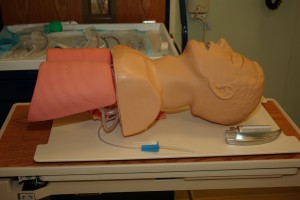Patient health and safety: Would you consent to a sleepy surgeon?
Posted On: Today An editorial in a recent New England Journal of Medicine is calling for yet another form that patients entering the hospital for elective surgery should sign: Informed consent when your surgeon is sleep deprived. No joke, it's a real proposal. A recent study found that attending surgeons who performed elective surgeries during the day after an on-call night of having less than "a six-hour opportunity for sleep" were significantly more likely to have complications related to their ….yawn…. procedure.
An editorial in a recent New England Journal of Medicine is calling for yet another form that patients entering the hospital for elective surgery should sign: Informed consent when your surgeon is sleep deprived. No joke, it's a real proposal. A recent study found that attending surgeons who performed elective surgeries during the day after an on-call night of having less than "a six-hour opportunity for sleep" were significantly more likely to have complications related to their ….yawn…. procedure.The authors also remind us that unlike doctors in training, surgeons don't have limits to the number of hours they work. And to make matters worse, studies have found that people are generally poor judges of their own degree of fatigue-induced impairment.
Hence the suggestion that when you are about to undergo an elective surgical procedure with a sleep-deprived surgeon, you should be informed of the potential health risks and sign a waiver if you consent to continue. Do you think that's a good idea? Would you consent under such conditions?
Potentially this is a problem rooted in the American tendency to frame health care from the perspective of scarcity, rather than one of abundance. Or in other words, a problem of resource management. Elective procedures are by definition not emergencies. They can be planned ahead, postponed if needed. Contrary to many claims, we also do not appear to have a shortage of physicians. The physician workforce may be poorly incented and inappropriately deployed, but shortage is unlikely. And I'm not sure anyone is claiming we have a shortage of surgeons performing elective surgery. Health care facilities like to schedule certain procedures into certain blocks of time, and rescheduling is considered inconvenient for patient and practitioner alike. But pushing docs to perform beyond their physiological capacity seems foolish at best, and a recipe for disaster at worst. It also appears predicated on the assumption that there is a shortage of time in which to perform elective procedures, or a shortage of surgeons to perform them. Hence the sleepy surgeon stooped over you in the OR. That's just not healthy. There's plenty of time, and plenty of professionals.
Truckers aren't allowed to drive more than a certain number of hours. Airplane pilots have mandated rest periods between flights. Why should surgeons be any different, barring unforeseen emergencies? Health care facilities should instead restrict sleep-deprived surgeons from performing elective procedures. It seems like poor judgment for patient health, poor judgment for liability, and plain unhealthy for the surgeon and their quality metrics.
And what exactly would an informed consent waiver about your sleepy surgeon look like? I'd love to see that wording.
No comments:
Post a Comment